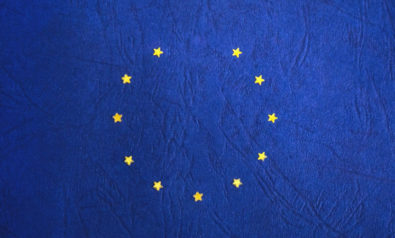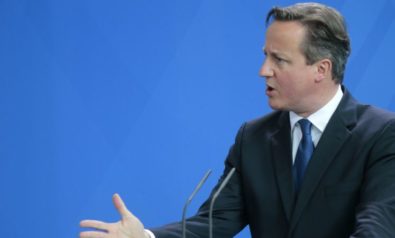Britain is not the only country in Europe to have a large number of Euroskeptics.
Brexit blues have now set in as the European Union (EU) and the United Kingdom’s Remain campaign reflect on what caused it to lose the referendum. The campaigns on both the Leave and Remain sides of the argument were not conducted by explaining the issues in a calm and considered manner, but were dominated by what has become known as “Project Fear.”
The behavior of two Etonians was totally unacceptable, with outrageous statements such as former Prime Minister David Cameron—leading the Remain campaign—suggesting that the UK leaving the EU would cause war to break out again in Europe, and the now-Foreign Secretary Boris Johnson—leading the Leave campaign—suggesting that the EU project was a repeat of historical attempts by Napoleon and Adolf Hitler to dominate the remainder of Europe.
On the other hand, there were a number of very experienced men whose voices were not heard, perhaps because they did not sell newspapers or improve TV ratings. Among the quieter voices whose opinions had a considerable influence on this author were Lord David Owen, former foreign secretary; Lords Nigel Lawson and Norman Lamont, both former finance ministers; Lord Mervyn King who was governor of the Bank of England for 10 years until 2013; Lord Digby Jones who was director general of the Confederation of British Industry (CBI) for six years; and Michael Geoghegan, a former group CEO of HSBC Bank. It was the opinion of all these experienced men that Britain would be better outside the EU that caused this author to decide to vote leave after being undecided at the outset.
Reluctant Brexiteers
Interestingly, Lord Jones recently described himself on a TV program as a “reluctant Brexiteer.” The main reason he gave for finally concluding that the UK must leave the EU was the fact that he believed the EU is incapable of reforming itself, which is the complete opposite of what Cameron was saying when he argued that the best option was to remain in a reformed EU. His views were based on negotiations with the EU prior to the referendum of June 23 and which this author showed to be worthless in an article for Fair Observer. There is no doubt that the Remain campaign concentrated too much on the economic risks of leaving the EU without balancing its arguments and explaining the political risks and opportunities of remaining.
There was also a great disadvantage in the Remain camp being led by the prime minister as that gave the impression of the campaign being solely run by the Conservative Party, which does not have support in the Labour Party heartlands of the UK. Also, the lack of a strong independent leader of the Remain campaign and lukewarm support from the Labour Party also contributed to the failure of the Remain campaign to make the arguments in a clear and effective manner.
While former Marks & Spencer Executive Chairman Lord Stuart Rose was in principle the leader of the Remain campaign, his voice was not heard and his only memorable comment was to say that wages would go up if the UK left the EU which was, of course, a great encouragement to the population in the Labour Party heartlands to vote leave. It is these failures that have contributed to the feeling on the Remain side of the argument that the result of the referendum did not reflect the true feelings of the population as a whole and has contributed to the ill feeling among those who voted to remain.
In view of this, it was with some relief to this author that the Conservative Party chose as its new leader former Home Secretary Theresa May, who is state-educated and had been on the Remain side, but is now making it clear that “Brexit means Brexit.” Prime Minister May will work with the Brexiteers in her new government to ensure that the hopes and aspirations of the country as a whole will be met during the negotiations with the EU and, more importantly, by accelerating the negotiation of trade agreements with the rest of the world.
While it may take time to negotiate trade agreements with the United States, China, Japan, India, Canada, Australia and South Korea, it should be much easier for the UK to do so than for the EU, which has to take account of the views of 27 countries in its negotiations. As a result, the EU does not have free trade agreements with any of these countries except for South Korea. While much is made of the problems for the UK reaching an agreement with the EU on the terms of its exit, it is noteworthy that the EU economy is already under stress and it needs the UK as much as the UK needs the EU.
Where Do We Go From Here?
As indicated above, May has made it clear that the UK will leave the EU and that there will be no second referendum. While attempts will be made to try to overturn the result of the referendum by claiming that the prime minister does not have the power or mandate to use her powers to invoke Article 50 of the EU treaty—which is required to trigger the process of leaving the EU—she will resist that.
If challenged she could, if necessary, call another general election which she would be most likely to win given the present disarray in the ranks of the Labour Party and the fact that many Labour voters chose to leave the EU. They would not support any member of the Labour Party advocating anything else and would then vote for the United Kingdom Independence Party (UKIP). That would strengthen May’s position as prime minister and remove all doubt as to her power to invoke Article 50.
It may well be that there will be demands for referendums from many more countries than the UK. Those demands are already being made, particularly in France, and that may lead to further reform of the EU.
As for the EU, the departure of the UK will be a great shock as Britain is the fifth largest economy in the world and has the fifth largest military. Britain is also a member of the G7 and G20 and has a permanent seat on the United Nations Security Council. The EU will be severely diminished without the UK, and its best interests will be served by negotiating a new relationship with Britain, which would not be the so-called Norwegian option but a new relationship that recognizes the importance of the UK to Europe.
It is unfortunate that many of EU leaders and the European Commission seem to think that the UK should be the supplicant in any negotiations, but they will find the tables turned once trade agreements are negotiated with other countries beyond Europe and once they realize that European banks and governments need the City of London to finance their debt requirements. London is the top financial market in the world, with Frankfurt and Paris as minnows by comparison that do not even appear in the top 10.
While French Foreign Minister Jean-Marc Ayrault has made some disparaging remarks about the appointment of Boris Johnson as UK foreign secretary and has even called him a liar, he will soon find that he needs to tone down the rhetoric. In any case the present government of France is likely to be ousted next year and so his opinions will not matter.
Sadly, Ayrault’s undiplomatic behavior reflects France’s long-standing jealousy of the UK as explained in an excellent book by academics Robert Tombs (British) and Isabelle Tombs (French) in their book published in the UK under the title That Sweet Enemy: Britain and France, The History of a Love-Hate Relationship and published in France under the title of La France et le Royaume-Uni: Des ennemis intimes. The authors explain that the cultural differences and animosity between Britain and France have existed for centuries.
In 1967, French President Charles de Gaulle was reported by the BBC to have said that the “present Common Market is incompatible with the economy, as it now stands, of Britain.” He went on to list a number of aspects of Britain’s economy, from working practices to agriculture that he said made the UK incompatible with Europe.
It is no good trying to conceal the cultural differences that will always be there and, with the EU bureaucracy dominated from the beginning by the French, it will always be hard to see how Britain would have been able to operate within the EU as it moves toward an ever-closer union, which is the main objective of the majority of its members and which is always thought to be the answer to every problem the EU encounters. The problem for the UK, had it voted to stay in the EU, would have been that it would have eventually become isolated in any case, were the objective of an ever-closer union to be achieved.
While the issue of sovereignty is very important to the British, many other EU member states (including France) have the same concerns about protecting their sovereignty, and that may well lead to a breakup of the union in the future. Until that happens, it is likely that the European Union will muddle along with problems ranging from immigration and terrorism to the financial problems of Greece and many other countries in the eurozone such as Italy, where problems are only just beginning to be noticed.
Britain is not the only country to have a large number of euroskeptics. It may well be that there will be demands for referendums from many more countries than the UK. Those demands are already being made, particularly in France, and that may lead to further reform of the EU. This could mean a development of a central core of countries moving toward an ever-closer union, and other countries remaining outside the core assuming a new form of associate status. This may well have suited the UK and may yet be negotiated as part of the Brexit terms. If not, it is likely that Brexit blues will be around for a long time to come. Only time will show.
The views expressed in this article are the author’s own and do not necessarily reflect Fair Observer’s editorial policy.
Photo Credit: Pidjoe
 We bring you perspectives from around the world. Help us to inform and educate. Your donation is tax-deductible. Join over 400 people to become a donor or you could choose to be a sponsor.
We bring you perspectives from around the world. Help us to inform and educate. Your donation is tax-deductible. Join over 400 people to become a donor or you could choose to be a sponsor.
Support Fair Observer
We rely on your support for our independence, diversity and quality.
For more than 10 years, Fair Observer has been free, fair and independent. No billionaire owns us, no advertisers control us. We are a reader-supported nonprofit. Unlike many other publications, we keep our content free for readers regardless of where they live or whether they can afford to pay. We have no paywalls and no ads.
In the post-truth era of fake news, echo chambers and filter bubbles, we publish a plurality of perspectives from around the world. Anyone can publish with us, but everyone goes through a rigorous editorial process. So, you get fact-checked, well-reasoned content instead of noise.
We publish 2,500+ voices from 90+ countries. We also conduct education and training programs
on subjects ranging from digital media and journalism to writing and critical thinking. This
doesn’t come cheap. Servers, editors, trainers and web developers cost
money.
Please consider supporting us on a regular basis as a recurring donor or a
sustaining member.
Will you support FO’s journalism?
We rely on your support for our independence, diversity and quality.

































